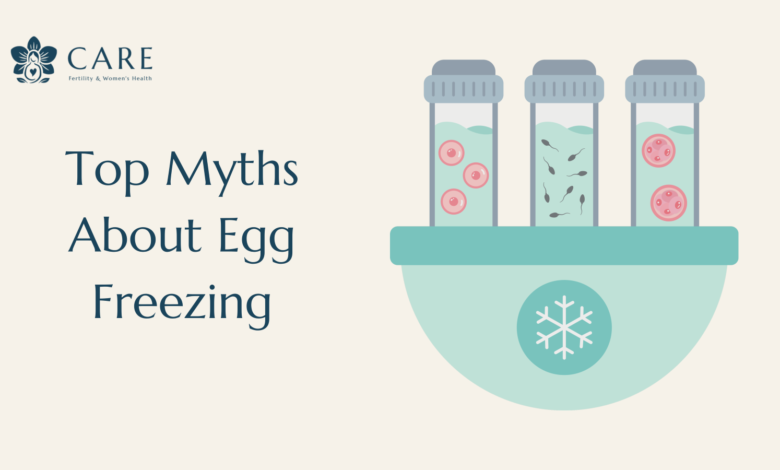Top Myths About Egg Freezing: Separating Fact from Fiction

Egg freezing, or oocyte cryopreservation, has emerged as a powerful tool for individuals seeking to preserve their fertility. However, despite its growing acceptance, myths and misconceptions can make the decision more daunting. At CARE Fertility, we are focused on educating and helping new parents make the right decisions. Let’s break down egg-freezing myths and answer common questions about its success rate, safety, and cost
Myth 1: You Can’t Freeze Eggs If You’re Over 35
Fact: A common misconception is that egg freezing is mainly for women in their late 30s or 40s. The truth? Egg freezing is most effective for women in their 20s to early 30s, as the quality and quantity of eggs are highest at younger ages. Studies show that freezing eggs before the age of 35 yields better outcomes due to higher-quality eggs.
See also: What Is the Future of Smartwatches in Preventive Health Care?
Myth 2: Egg Freezing Guarantees a Future Pregnancy
Fact: While egg freezing greatly improves the chances of future pregnancy, it is not a guarantee. The success of using frozen eggs depends on multiple factors, including age at the time of freezing and the number of eggs retrieved. Success rates per thawed egg range from 4% to 12%, depending on the individual’s age and health.
Our clinic emphasizes transparency and realistic expectations, providing expert consultations to help you understand your unique chances and options.
Myth 3: The Process Is Unsafe and Full of Risks
Fact: Modern advancements in vitrification, a rapid freezing technique used at CARE Fertility, have enhanced the safety and success of egg freezing. The procedure is generally safe, with severe complications occurring in less than 1% of cases. Temporary side effects like mild bloating are monitored closely, ensuring a safe and comfortable experience.
Myth 4: Egg Freezing Is Extremely Expensive and Unaffordable
Fact: While egg freezing does require an investment, with average costs ranging from $6,000 to $15,000 per cycle, many clinics, including CARE Fertility, offer flexible payment options and financial plans to make it more manageable. Additionally, some employers now offer fertility benefits that can cover part or all the procedure’s costs.
Myth 5: Frozen Eggs Are Not as Viable as Fresh Ones
Fact: With advanced techniques like vitrification, egg survival rates upon thawing now exceed 90%, ensuring that frozen eggs maintain their quality.
CARE Fertility’s data supports that the success rates of using frozen eggs are on par with fresh eggs for IVF treatments, dispelling fears that egg freezing compromises fertility potential.
Myth 6: Only Women Without Partners Consider Egg Freezing
Fact: Contrary to popular belief, many women in relationships choose egg freezing as a proactive step in family planning. Couples may decide to freeze eggs to ensure they have viable options for the future, should natural conception become challenging as they age.
Your Fertility, Your Choice
Egg freezing is a valuable option that allows you to take control of your fertility. By debunking these common myths, CARE Fertility and Women’s Health aims to shed light on the realities of the process, giving you the confidence to make well-informed decisions. We were pioneers in offering in-house genetic testing and personalized fertility treatment plans, ensuring you receive the highest standard of care.
CARE Fertility and Women’s Health is a leading fertility clinic, offering personalized care and advanced reproductive technology to help individuals and couples achieve their dream of parenthood. With state-of-the-art genetic testing, individualized treatment plans, and holistic support, we specialize in complex fertility cases and boast some of the highest success rates in Canada.





